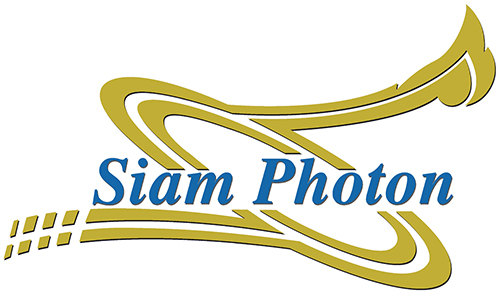
Peptides are the linked short-chain amino acids with nutritional benefits to human such as boosting the immune system, combating free radicals, reducing lipid accumulation, preventing cancer, etc. These peptides, found in all living organisms such as plants, animals, various types of mushrooms, are currently used as functional food ingredients to prevent and treat obesity-related conditions due to their ability to decrease lipid and triglyceride accumulation in human body.
Lingzhi mushroom has long been recognized as healthy food, and numerous studies have confirmed its bioactivity in stimulating the immune system, preventing inflammation, relieving pain, alleviating stress, delaying aging, inhibiting cancer development, and reducing cholesterol accumulation in the body. The mushroom is also rich in proteins. Researchers from National Science and Technology Development Agency (NSTDA) including Dr. Sucheewin Krobthong, Dr. Atchara Paemanee, Dr. Sithichoke Tangphatsornruang, and Yodying Yingchutrakul, together with Dr. Chartchai Chaichana from Siriraj Diabetes Center of Excellence, Faculty of Medicine Siriraj Hospital, Mahidol University, Prof. Dr. Kiattawee Choowongkomon from Faculty of Science, Kasetsart University, and a beamline scientist Dr. Buabarn Kuaprasert from Synchrotron Light Research Institute (Public Organization) or SLRI jointly developed the innovation for getting Lingzhi extracts in the form of hydrolyzed protein for further use as functional food.
The research team applied synchrotron FTIR spectroscopy and imaging technique to seek parts of cross-section Lingzhi cap and stipe with high protein content. The team conducted afterwards the heat-map analysis which illustrated protein amount of each part by color shade and found that Lingzhi cap contained higher protein amount than the stipe did. This protein analysis method is known for its easy sampling step, and simple and environmentally friendly result analysis. With this method, the research team can easily analyze crusty-shell samples like Lingzhi, thus being time and cost saving.
The results of this analysis led to the selection of Lingzhi suitable parts to undergo the hydrolyzed protein extraction method and production of liposome nano-encapsulated peptides. These peptides can inhibit lipid accumulation in fat cells and are non-toxic to the cultured fibroblast skin cells which play a role in collagen production. The application of synchrotron-related technique in developing the lab-prototype liposome nano-encapsulated peptides will lead to industrial development of medical functional food formulas for obesity prevention and treatment later on."
References:
1. Petty Patent, Application no. 2003001351, Application date 19/06/2020: Sucheewin Krobthong, Atchara Paemanee, Sithichoke Tangphatsornruang, Buabarn Kuaprasert, Chartchai Chaichana, Kiattawee Choowongkomon, and Yodying Yingchutrakul, Method for extraction of Lingzhi bioactive compounds with prevention properties of lipid accumulation and free radicals production
2. Publication: Krobthong, S.; Yingchutrakul, Y.; Visessanguan, W.; Mahatnirunkul, T.; Samutrtai, P.; Chaichana, C.; Papan, P.; Choowongkomon, K. Study of the Lipolysis Effect of Nanoliposome-Encapsulated Ganoderma lucidum Protein Hydrolysates on Adipocyte Cells Using Proteomics Approach. Foods 2021, 10, 2157.
Article by:
Dr. Sucheewin Krobthong, Dr. Atchara Paemanee, Dr. Sithichoke Tangphatsornruang, and Yodying Yingchutrakul, National Science and Technology Development Agency (NSTDA)
Dr. Chartchai Chaichana, Siriraj Diabetes Center of Excellence, Faculty of Medicine Siriraj Hospital, Mahidol University
Prof. Dr. Kiattawee Choowongkomon, Faculty of Science, Kasetsart University
Dr. Buabarn Kuaprasert, Beamline Scientist, Synchrotron Light Research Institute (Public Organization)

